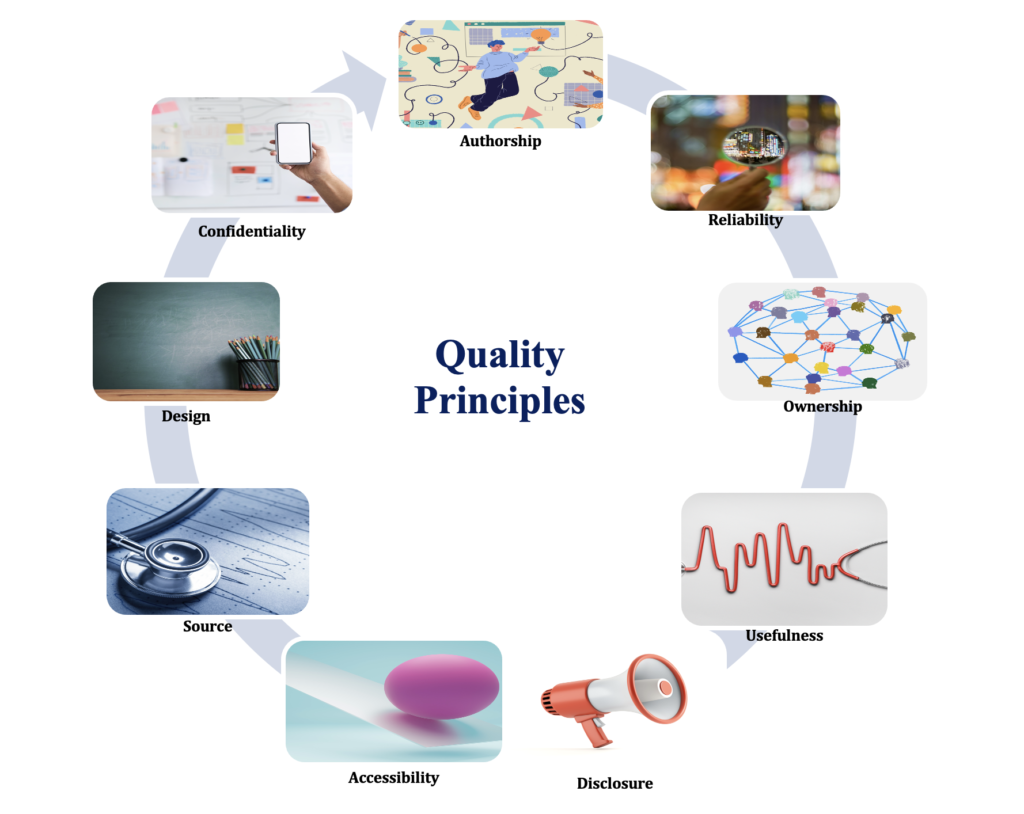Unmasking Health Myths: Crafting Quality Standards Against Online Misinformation and Disinformation.
Unmasking Health Myths: Crafting Quality Standards Against Online Misinformation and Disinformation
Lubna Daraz and Cicek Dogu
COVID-19 has become the catalyst of health MIDI (misinformation and disinformation) on the World Wide Web. It is difficult for people to know what to believe. If people act on wrong information, their health may get worse. We need to be ready when the next health emergency comes. We need to know how to find good health information.
To tackle this challenge, numerous guidelines have emerged to aid individuals in evaluating the credibility of online health information. Despite these efforts, a universally validated and user-friendly tool, endorsed by various stakeholders, is yet to materialize. Existing strategies, encompassing standards, frameworks, codes of conduct, and checklists, have shown limitations in assessing the reliability of online health information. Our team employed a structured content analysis method using existing guidelines to identify the fundamental principles essential for evaluating website trustworthiness.
—The COVID-19 pandemic has worsened the 'infodemic,' emphasizing the crucial need for trusted online health information—
Implementing a structured approach to developing quality standards
We used a structured method to create Quality Principles. The process of developing these principles was organized and included these steps: 1) finding tools for assessing online health information, 2) making a framework to analyze these tools, 3) using the Delphi Consensus Method to generate a list of quality principles, and 4) validating and finalizing a unique set of quality principles with patients and the public.

Quality Principles to mitigate online health misinformation and disinformation (MIDI)
The list of the quality principles includes the following: 1) Authorship, 2) Reliability, 3) Ownership, 4) Usefulness, 5) Disclosure, 6) Accessibility, 7) Source, 8) Design, and 9) Confidentiality. These quality principles will inform the development of the Public MIDI Toolkits for diverse populations and policy frameworks for online health information developers.

Concluding Remarks
The explosion of MIDI during the COVID-19 pandemic has sparked concerns about the use of the web for health information. There is an urgency to address this issue with the likelihood of future pandemics and other public health emergencies. Governments must also ensure the availability of accurate health information. This work needs to happen now.
Cite this article in APA as: Daraz, L. & Dogu, C. Unmasking health myths: Crafting quality standards against online misinformation and disinformation. (2024, April 4). Information Matters, Vol. 4, Issue 4. https://informationmatters.org/2024/04/unmasking-health-myths-crafting-quality-standards-against-online-misinformation-and-disinformation/





